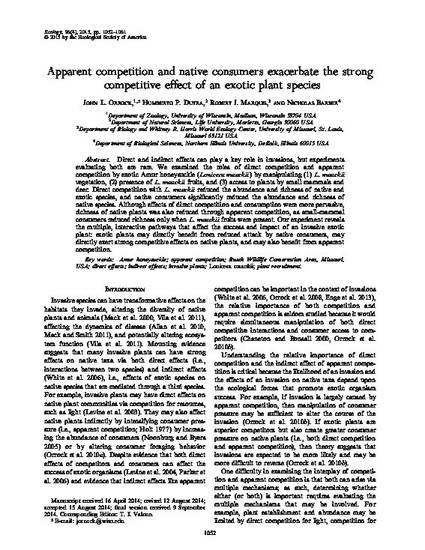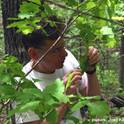
Article
Apparent competition and native consumers exacerbate the strong competitive effect of an exotic plant species
Ecology
(2015)
Abstract
Direct and indirect effects can play a key role in invasions, but experiments evaluating both are rare. We examined the roles of direct competition and apparent competition by exotic Amur honeysuckle (Lonicera maackii ) by manipulating (1) L. maackii vegetation, (2) presence of L. maackii fruits, and (3) access to plants by small mammals and deer. Direct competition with L. maackii reduced the abundance and richness of native and exotic species, and native consumers significantly reduced the abundance and richness of native species. Although effects of direct competition and consumption were more pervasive, richness of native plants was also reduced through apparent competition, as small‐mammal consumers reduced richness only when L. maackii fruits were present. Our experiment reveals the multiple, interactive pathways that affect the success and impact of an invasive exotic plant: exotic plants may directly benefit from reduced attack by native consumers, may directly exert strong competitive effects on native plants, and may also benefit from apparent competition.
Disciplines
Publication Date
April, 2015
DOI
10.1890/14-0732.1
Citation Information
John L. Orrock, Humberto de Paula Dutra, Robert Marquis and Nicholas A. Barber. "Apparent competition and native consumers exacerbate the strong competitive effect of an exotic plant species" Ecology Vol. 96 Iss. 4 (2015) Available at: http://works.bepress.com/robert-marquis/70/
